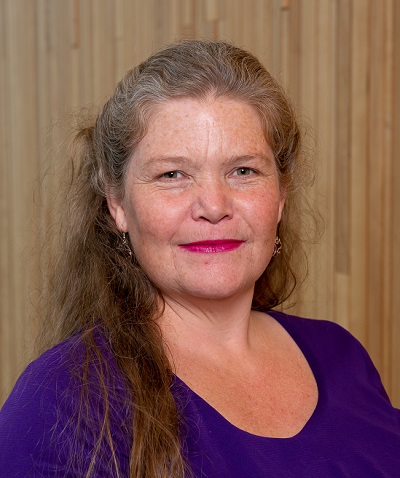Q + A with Katherine Ravenswood
Associate Professor Katherine Ravenswood is the Lead Researcher of our Care/Work Research Group and part of the NZWRI Leadership Team.
When asking Katherine to fill in the blanks: "Employment relations is ___, ___, and ___" she said:
Employment relations is complex and exciting, a challenge to work out how and why things happen, and how to get the best balance between the needs of business and the needs of workers and society.
1. When and why did you decide that you wanted a career in employment relations?
Well, when I was a teenager, I wanted to be a philosopher - I thought that was sitting around in some sort of contemplative life. I knew I would do a PhD, but I though it would be in Medieval Literature (rather than Management). I started work at AUT and became involved with my union while I studied employment relations part time. I really enjoyed the research component of my BBus(Hons), which cemented the fact I wanted to continue researching. It wasn't until about halfway through my PhD that I knew for sure I wanted to be an academic. Once I made that decision, there's been no holding me back!
2. Describe one of your recent research projects.
In a recent project my colleague, Dr Julie Douglas, and I looked at the impact of the 2017 Pay Equity Settlement on care and support workers and managers in residential aged care, home care and the disability sector. Our research was in collaboration with the Human Rights Commission and the Caring Counts Coalition, and supported by Careerforce. The motivations behind this project were to understand how the Settlement had impacted workers in these sectors.
3. Describe the key results/main findings.
Through nationwide focus groups and interviews, we found that everyone welcomed the increased wages for care and support workers - people thought the Settlement was well overdue. The increased wages made a big difference to many care and support workers who can now make more choices in life. For example, seeing a doctor or optometrist for a check-up; going on holiday; reducing hours to spend more time with family.
Unfortunately, many managers responded to the Settlement by reducing the regular hours of their workforce or increasing the workload/responsibilities of their care and support workers. It is possible that some of this was driven by funding models (which many say were tight anyway), rather than the worker's pay rate. In other words, you might have a care workers on the top hourly rate providing care to a client at the lowest level of care. Whatever the reason for these decisions, reductions in hours mean a number of care and support workers may now be worse off overall after the Settlement.
4. What makes this research impactful?
Our research highlights the theory-policy-practice divide: results show how the Settlement actually impacts the workplace, not just what we hope happens. Our research can inform ongoing policy over the 5-year implementation of the Settlement and can contribute to developments in legislation around equal pay. It also contributes to what we know (little) about how regulation can change and improve inequality at work.
5. What do you enjoy doing in your spare time?
Our family has a garden, two cats, two rabbits and two chickens - so that takes up some of our spare time. I enjoy swimming and working out at the gym. One of my favourite ways to unwind and do something creative is knitting. There's something special about wearing things you've made and giving homemade gifts to people.

Further information
To find out more about Katherine Ravenswood, her extended research expertise and academic career, please visit her academic profile.